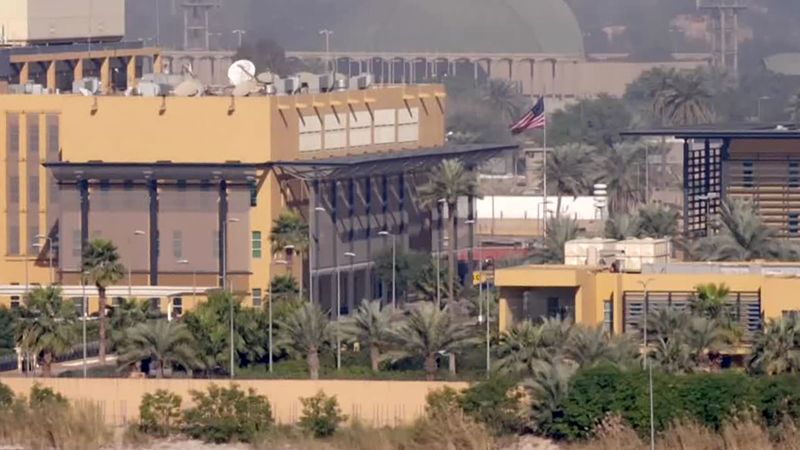U.S. Government’s Response to Rising Tensions in the Middle East
Increased Security Measures
On Wednesday, U.S. State and Defense departments initiated efforts to evacuate non-essential personnel from various locations across the Middle East. This decision comes amidst escalating tensions in the region, as U.S. officials and sources closely monitor the unfolding situation. The move signifies a shift in the U.S. approach to managing its presence in areas historically fraught with geopolitical challenges.
Monitoring Developments
Although the precise reasons behind this sudden change in posture remain unclear, a defense official indicated that U.S. Central Command (CENTCOM) is actively observing “developing tension in the Middle East.” This vigilance reflects an underlying concern about the evolving dynamics involving key regional players, particularly with the backdrop of U.S.-Iran relations.
Presidential Commentary
President Donald Trump addressed the media upon arriving at a Kennedy Center event, stating, “They are being moved out because it could be a dangerous place.” His acknowledgment of potential risks underscores the administration’s commitment to safeguarding American personnel overseas. Trump added, “We’ll see what happens,” reflecting the unpredictable nature of international diplomacy.
Tensions with Iran and Israel
The heightened security concerns are particularly pronounced amidst rising tensions between Iran and Israel. With the Trump administration continuing its pursuit of a new nuclear deal with Iran, recent events have prompted such precautionary measures. Both countries’ actions present a complex picture, making the U.S. role crucial in navigating these high-stakes negotiations.
Authorization of Departures
Secretary of Defense Pete Hegseth has authorized voluntary departures for military dependents stationed throughout the Middle East. A defense official emphasized that the “safety and security of our service members and their families remains our highest priority.” This proactive stance signals the administration’s seriousness in maintaining a secure environment for Americans abroad.
State Department Actions
In parallel, the State Department is preparing to order the evacuation of non-essential personnel from embassies in several critical locations, including Iraq, Bahrain, and Kuwait. This was confirmed by a U.S. official and other sources familiar with the situation. Additionally, the U.S. consulate in Erbil, Iraqi Kurdistan, is also affected by these decisions, although an Iraqi government official suggested there is no direct link to security issues within Iraq.
Travel Advisory Update
In light of these developments, the State Department has updated its travel advisory to reflect the departure of non-emergency U.S. government personnel due to the prevailing heightened regional tensions. Such advisories serve to inform American citizens traveling or living abroad about potential risks in specific areas.
Diplomatic Conversations
President Trump has recently expressed growing skepticism regarding the prospects of securing a new nuclear deal with Iran. In a podcast interview, he remarked on Tehran’s apparent delays, saying, “I’m getting more and more less confident about it.” His comments reveal a shift in the administration’s outlook on international negotiations and may influence future U.S. policy in the Middle East.
Communication with Israel
During his recent conversations, Trump urged Israeli Prime Minister Benjamin Netanyahu to dial down rhetoric regarding potential military actions against Iran. This reflects an attempt to maintain stability in the region and prohibit further escalation of tensions between the U.S.’s key allies.
Intelligence Insights
Further complicating the situation, previous reports indicated that U.S. intelligence had detected signs that Israel was considering military preparations targeting Iranian nuclear facilities. Such intelligence highlights a fraught relationship within U.S. strategic interests and the actions of its allies. Yet, officials have cautioned that there is significant dissent within the U.S. government regarding the likelihood of Israel taking military action.
Iran’s Stance
Adding another layer to the already complex landscape, Iran’s defense minister recently issued a warning that should nuclear negotiations fail, the U.S. might “be forced to leave the region.” This statement underscores the critical nature of diplomatic relations, with implications that extend beyond just U.S.-Iran interactions to the broader Middle Eastern geopolitical landscape.
Conclusion
As the situation evolves, U.S. officials continue to reassess their strategies and personnel deployments in response to local and regional tensions. This careful management underscores the administration’s commitment to balancing national security with the complexities of international diplomacy in a volatile region.


